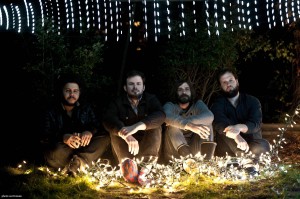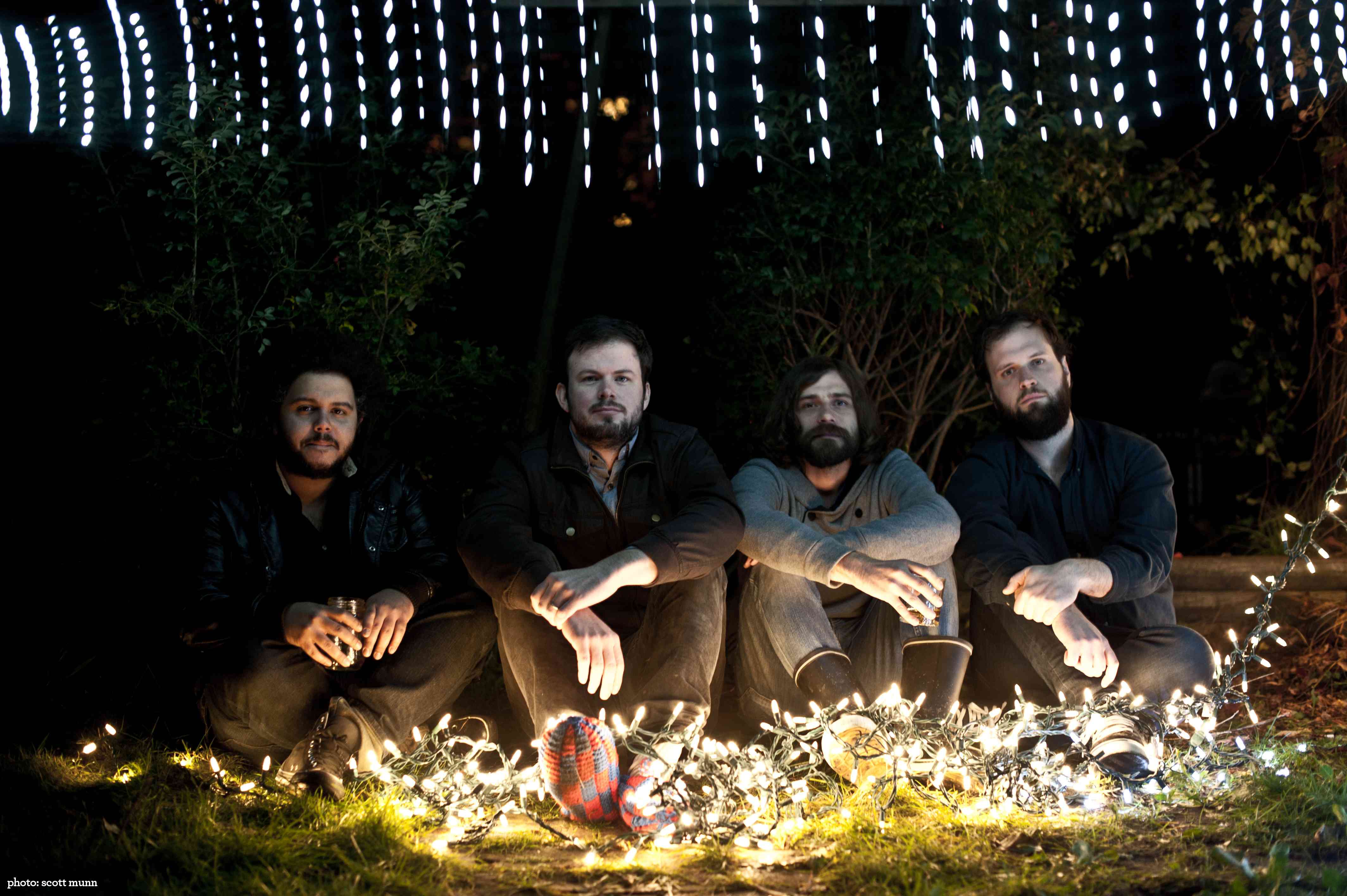
The year was 2001. Four Nova Scotia natives frequently gathered to jam on the fifteenth floor of a decrepit and somewhat forbidding high-rise apartment building. “The architect actually jumped off the top,” recalled Loel Campbell, who mans the drums. “He put a pool on top of the building that couldn’t actually hold water. If you put water in it, it would compromise the entire structure.” It was this underwhelming fixer-upper was to be the birthplace of arguably one of the most successful musical groups to hail from the Maritimes: Wintersleep.
Wintersleep, which also consists of Michael Bigelow, Tim D’Eon, Jon Samuel, and Paul Murphy, is recognized as an indie-rock band — however, Campbell disagrees with the notion of limiting their musical spectrum to one category.
“I think we definitely drift around in terms of style,” Campbell said, recalling one instance in which the band was pegged as Celtic post-rock. Their Myspace page brands their genre, equally obscurely, as German pop/soul. “I just call us a rock band, simple,” said Campbell.
The group’s name stems from the German translation of ‘hibernation.’ “The band started as a side project, so we thought that it was an apt title, because [Wintersleep] was something that we were doing on the side,” Campbell said. Originally, the moniker was meant to be a metaphor; however, while their sound has evolved since the band’s inception, Campbell claims “it still feels like a proper image to attach to the music.”
From emotion-heavy slow jams to dynamic up-tempo tunes, Wintersleep has touched on countless areas of the rock scene. The band’s self-titled first record is “very stripped down” and raw, according to Campbell— a reflection of each member’s progressive-rock background and the first step towards finding a collective voice. On Untitled, the band’s second album, the same heavy sound resonates, this time interspersed with “longer, punchier rock songs.”
Welcome to the Night Sky saw the addition of producer Tony Doogan — known for creating rock-heavy material — as well as a resulting sense of balance, power, and consistency in Wintersleep’s sound. Their fourth record, New Inheritors, is “definitely a rock band kind of record,” Campbell said. Written quickly on the road in the confines of a dingy rehearsal space, the limited resources set the tone for the resulting sound.
Hello Hum, released in June 2012, is the most vibrant and energetic album yet, thanks to the hiring on of co-producer Dave Fridmann of MGMT and Flaming Lips fame. “He was always the one who said, ‘play it faster,’” Campbell recalled. “I’m very happy with the result. It’s been this natural progression. We’ve become better musicians over time.”
As a band rooted in Canada’s East coast, Wintersleep effortlessly puts forth a human edge. “We were making music because we didn’t want to play sports,” Campbell said, compared to groups originating in the big city with “the industry side of music in mind.” Not having grown up in an atmosphere where bright lights and loud sounds are paramount, Wintersleep exudes a band-next-door feel. You can take Campbell’s word for it — they’ll never have pyrotechnics onstage.
Channeling Wintersleep’s humble nature, he asserts that there is no pivotal moment during which the band felt it safe to declare itself wholly successful.
“It’s always a struggle,” said Campbell. “Every night that we play a show, I think, ‘This is where I should be.’ But I constantly self-doubt and worry. I don’t think that, in today’s climate, you can make it to some sort of [invincible] place. I don’t even want that.” If anything, the release of Welcome to the Night Sky, the band’s third studio album, marked a monumental time in Wintersleep’s career. Ever since the album came out in 2007, touring has become a full-time commitment, and the performers haven’t looked back.
The 2008 Juno Awards saw a win for the band in the “New Group of the Year” category, placing them among the ranks of past winners likes of Bedouin Soundclash and Alexisonfire. While having a Juno under their belt allowed Wintersleep to gain publicity, “the main thing was that it validated what we were all doing for our parents,” said Campbell. “They were really proud of us.”
Despite its deceiving facade, Wintersleep has since opened for many household names, such as Paul McCartney and Pearl Jam.
What does Wintersleep have in mind for its listeners? “I hope people can relate to [the music],” said Campbell. “We try to keep things ambiguous when it comes to explaining meanings behind songs, because it’s always awesome when people take away their own interpretation. It can instantly change my day, always for the better. I hope that people can have similar experiences with some of our music. And hopefully they can dance to it sometimes,” he said with a laugh. “Dancing is good.”





Awesome band, insightful and well put together article!